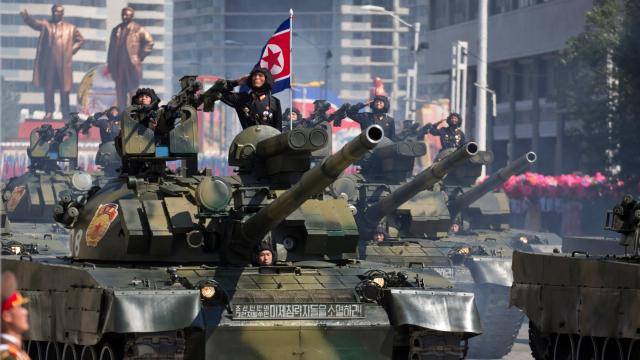A company that the United Nations has said is a front for North Korean intelligence agencies, Global Communications Co. (Glocom), has continued its efforts to advertise sanctions-violating military hardware on Facebook, Twitter, and YouTube, Motherboard reported on Wednesday.
Glocom, which has in the past presented itself as a Malaysian company, was revealed in 2017 by Reuters to actually be a North Korean front that sold sanctioned battlefield radio equipment and accessories, with an internal UN report saying it appeared to be run by the Reconnaissance General Bureau, which is “tasked with overseas operations and weapons procurement.”
The company was banned from YouTube that year, but it made a return to that platform under a new channel and also set itself up on Twitter, Motherboard wrote.
Both companies removed the accounts when the site reached out for comment. Glocom also has Facebook, Instagram, and Linked accounts that Motherboard reported “appear to be much less active.” Facebook told the site it would investigate.
While this could be read as an example of the way platforms that rely heavily on automation for moderation purposes are constantly engaged in a game of whack-a-mole, North Korea is well known for its persistence in evading international efforts to contain its influence.
North Korea allegedly operates a wide network of front companies in the business of everything from facial recognition technology and computer programming to illicit activities like drug smuggling and counterfeiting.
It also reportedly maintains access to international trade by using cargo ships with false flags, faked customs manifests, and deactivated tracking systems. All these activities have apparently been enabled by backdoors in the global financial system, such as foreign intermediaries. According to some reports, Malaysia in particular has turned a blind eye to these operations.
However, the continued use of the Glocom brand after its unmasking appears to be somewhat unusual. Motherboard wrote that Shea Cotton, a research associate with a North Korea focus at the James Martin Center for Nonproliferation Studies, told them in an email that “using them as platforms to market sanctions violating products” and its persistence was unusual:
Cotton said “this company continues to operate openly. Most DPRK [Democratic Peoples’ Republic of Korea] fronts, when exposed, usually fold or at the very least shut down and move their operations to another country and re-open under a new name. This one hasn’t done that. We’ve seen them try to create this spin off brand called ‘FACOM’ and sell a few of their products under it but as you’ve seen their main brand is still thriving apparently.”
Cotton told the site that “To me it suggests that despite the negative publicity they must have established some sort of customer base that respects their brand. I’d be very curious who exactly that is.”
